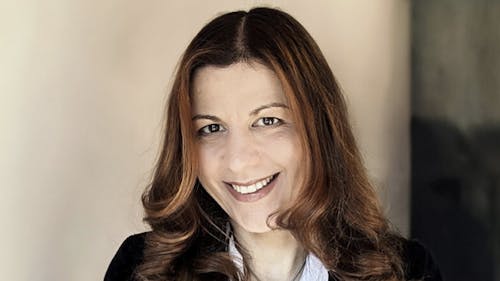U. professor to serve as AI, communications expert in National Academies

Katherine Ognyanova, an associate professor in the Department of Communication, was recently designated as a member of the Standing Committee on Advancing Science Communication, from the National Academies of Sciences, Engineering and Medicine's Board on Science Education.
The goal of the National Academies of Sciences, Engineering and Medicine is to offer unbiased counsel to address difficult problems for social good and advance innovation. In addition, the Standing Committee on Advancing Science Communication establishes networks and relationships aimed at focusing on priorities in scientific research and communication.
Ognyanova spoke to The Daily Targum about her career background and this new distinction.
She said that she will be part of an artificial intelligence group for the committee to provide her expertise.
"I will take part in work examining the role of artificial intelligence — how new AI technologies are transforming research and how they can enhance or disrupt public communication," she said, adding that the group addresses the "rapidly changing information environment."
She originally studied computer science, but said she later became interested in the overlap of social and technological sciences.
She also said that due to her academic curiosities outside of computer science, she decided to pursue a Ph.D. in communication from the University of Southern California focusing on social networks and digital platforms.
At Rutgers, she said that she teaches how misinformation is spread through social media and examines the relationship between trust in societal institutions and life perspectives and actions.
She teaches undergraduate and graduate courses focusing on network analysis, computational methods and mass communication. She also said that she participates in programs that involve data science and AI at the University.
For the Standing Committee, Ognyanova said that there is no application process for appointment. Rather, it is based on a nomination, which she accepted.
"Being part of the committee is an important responsibility, as members get to have a say in setting a long-term vision and support the National Academies' priorities for science," she said.



